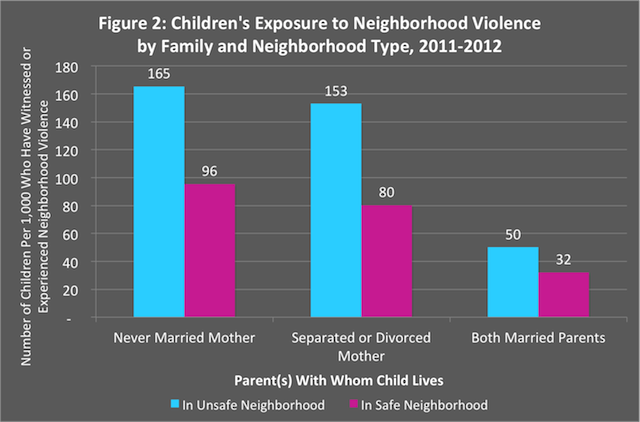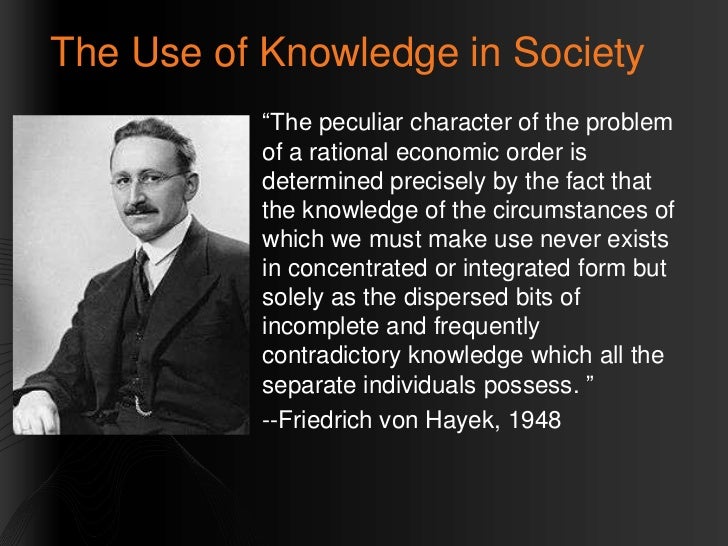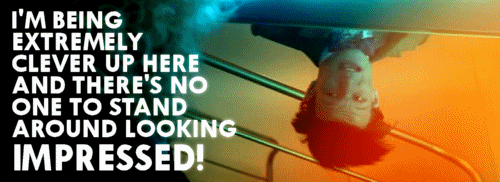Research has found that children in two-parent families are less likely to be victims of a crime compared to those in single parent households, but it has been ambiguous as to whether this is due to marriage or the neighborhoods in which married families choose to live. A recent analysis on the 2011-2012 National Survey of Children’s Health, however, “shows that even when their families live in unsafe neighborhoods, children in married two-parent families are less likely to be exposed to violent crime than children of never-married and divorced parents.” Family scholar Nicholas Zill explains,
When I looked at combinations of neighborhood safety and family type in which children lived, those living with never-married mothers in unsafe or unsupportive neighborhoods unsurprisingly had the highest rate of encountering neighborhood violence: 165 children per 1,000. This was five times the rate of violence exposure for children living with both married parents in safe and supportive neighborhoods: 32 children per 1,000. Children living with separated or divorced mothers in unsafe neighborhoods were not far behind their peers with never-married mothers: 153 children per 1,000. While children in intact families who resided in unsafe neighborhoods had a higher risk of encountering violence than similar children in safe neighborhoods, their rate of exposure was lower than that of children of never-married or divorced mothers who lived in safe and supportive neighborhoods.[ref]Of course, “these comparisons are adjusted for differences across family types in the average age, sex, and race/ethnicity of the child; family income and poverty status; and the parent’s education level.”[/ref]

Zill offers three possible explanations for his findings:
First is the stress of conflict between parents and the strain of raising children as a lone parent in reduced financial circumstances. These can lead to a lack of vigilance and the overlooking of simple precautions, such as making sure that doors and windows are locked in houses and vehicles. Second, if they have broken up with their child’s other parent, a single parent will usually begin dating and trying to find a new partner. This process often involves being out of the house at night, sometimes leaving children with no or inadequate supervision. Third, as children become adolescents, the peers they become involved with in their less-than-ideal neighborhoods and schools are often troubled ones, who can lead them into hazardous situations and activities.
For me, this is just more evidence as to why those who are concerned about social justice should be the biggest advocates of marriage.



 A
A  The great British-American neurologist Oliver Sacks recently discovered that he has terminal cancer. A rare tumor of the eye that left him blind in one eye metastasized and now occupies a third of his liver. Sacks is the author of several books, including
The great British-American neurologist Oliver Sacks recently discovered that he has terminal cancer. A rare tumor of the eye that left him blind in one eye metastasized and now occupies a third of his liver. Sacks is the author of several books, including  Science writer Michael Shermer argues that we are in the
Science writer Michael Shermer argues that we are in the 


 New Testament scholar,
New Testament scholar,